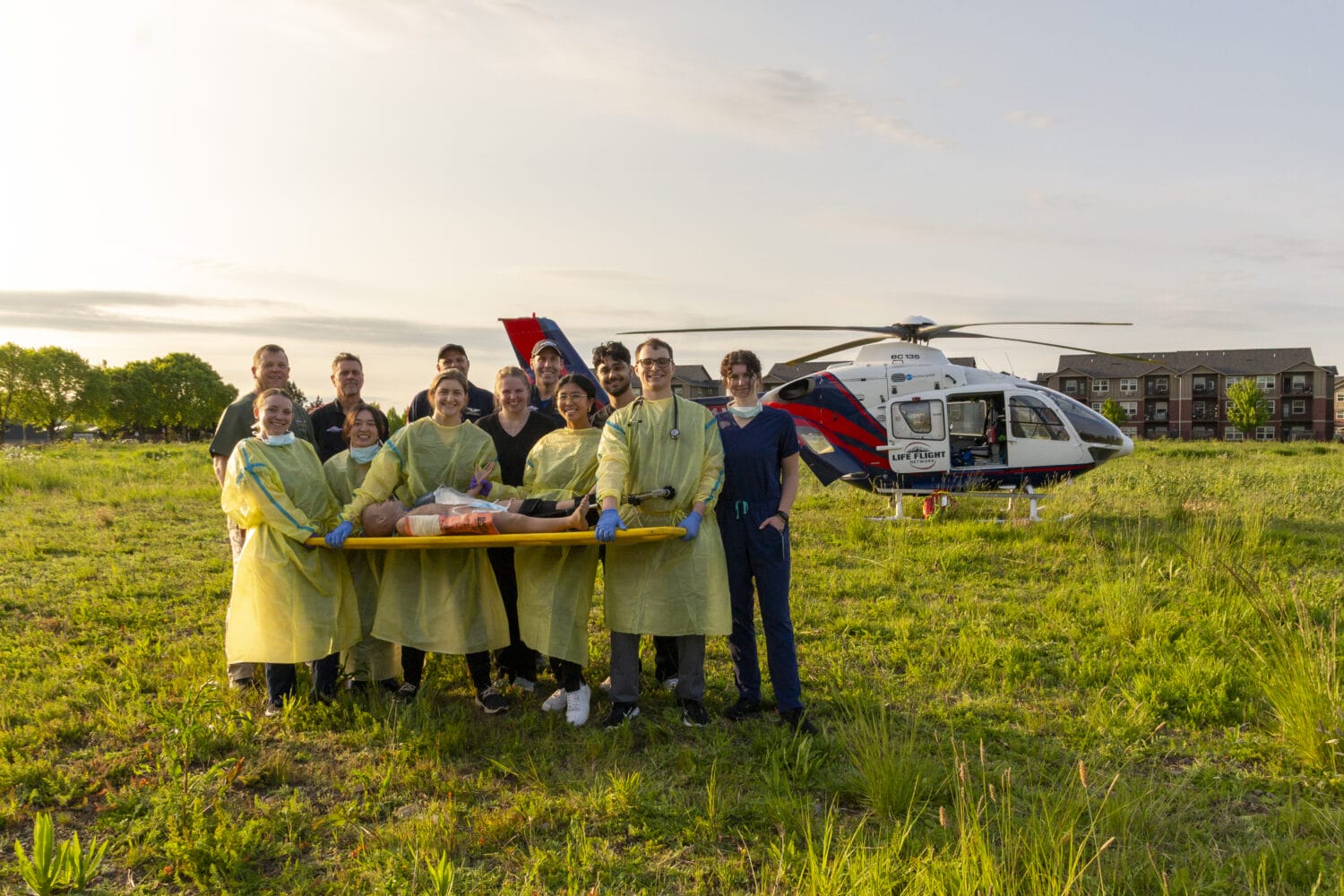Nutrition Facts (and Fiction)
Nutrition plays an important role in health care, both for practitioners and their patients.
March is National Nutrition Month, which focuses attention on the importance of making informed food choices and developing sound eating and physical activity habits.
The goal is to create awareness of good nutrition and also to recognize registered dietitians as nutrition experts, said Ruth Frechman, registered dietitian and spokeswoman for the American Dietetic Association, which sponsors National Nutrition Month.
A healthy lifestyle doesn’t involve magic foods or supplements. People should eat healthy by choosing lean sources of protein and non-fat or low-fat dairy, she said.
“People need to eat more fruits and vegetables, decrease their portions and increase their physical activity,” Frechman said.
For assistance, people should consult a registered dietitian (RD), Frechman said. A good online reference is MyPyramid.gov, by the U.S. Department of Agriculture, she said. The site shows the types of food and the amounts recommended for a healthy lifestyle. Health care providers should also be aware of nutrition.
“I think it’s important for health professionals to be role models,” Frechman said. “They can be an inspiration to other people.”
Health professionals should know about nutrition because poor nutrition is linked to many chronic diseases such as heart disease, cancer, stroke and diabetes, said WesternU student Leah Horowitz, MSHS ’10.
Horowitz is also a student in the Coordinated Dietetics Program at Cal State Los Angeles. Her goal is to become a professor and develop teamwork among professionals with regards to nutrition.
Becoming a registered dietitian requires a bachelor’s degree and completed coursework specified by the accrediting body for registered dietitians. Once that process is complete, you take a national registration exam.
“It’s important to know what their credentials are,” Horowitz said. “If they’re an RD, you know 100 percent what they’ve gone through.”
There is a lot of bad information on nutrition out there, she said. Diets are not always safe for individuals to participate in. Rapid weight loss strategies typically result in weight loss due to water loss that can be dehydrating. Losing more than two pounds per week can lead to muscle breakdown and decreased metabolism, Horowitz said.
“Realize a diet is not something you go on, it’s a way of life,” Horowitz said. “Nothing beats making good food choices and being physically active every day.”
But some people, especially students, have trouble balancing a healthy lifestyle with a hectic life.
“We have our ideals and our practical reality,” Horowitz said. “College students don’t have the money to buy certain food. They don’t have time. They’re up crazy hours. They go with what’s available to them.”
WesternU students can attest to this reality. Sonny Rull, MSPA ’09, said he eats five servings of fruit per day and drinks V8 and orange juice, but he doesn’t always have time to prepare a nutritious meal.
“Before PA school I did eat healthy, but now it’s more convenient to get fast food,” he said while eating a combination of the two – a Yoshinoya beef bowl and an apple – recently in HPC’s student commons.
First-year pharmacy students Hersela Mirzatuny and Lilit Haytaian bought salads from the vending machine in HPC student commons.
Haytaian said she tries to eat lots of vegetables and fruits. Talking to patients about nutrition will be important to her because eating fattening food can lead to many diseases, she said.
Certain medications might help lower cholesterol, but healthy eating is key, Mirzatuny said.
“They think they can substitute medication for food,” she said. “You can’t.”
For more information about National Nutrition Month, visit the Web site www.eatright.org/cps/rde/xchg/ada/hs.xsl/NNM_2007_home.htm
For more information about MyPyramid, (now called MyPlate) visit the Web site www./myplate.gov



